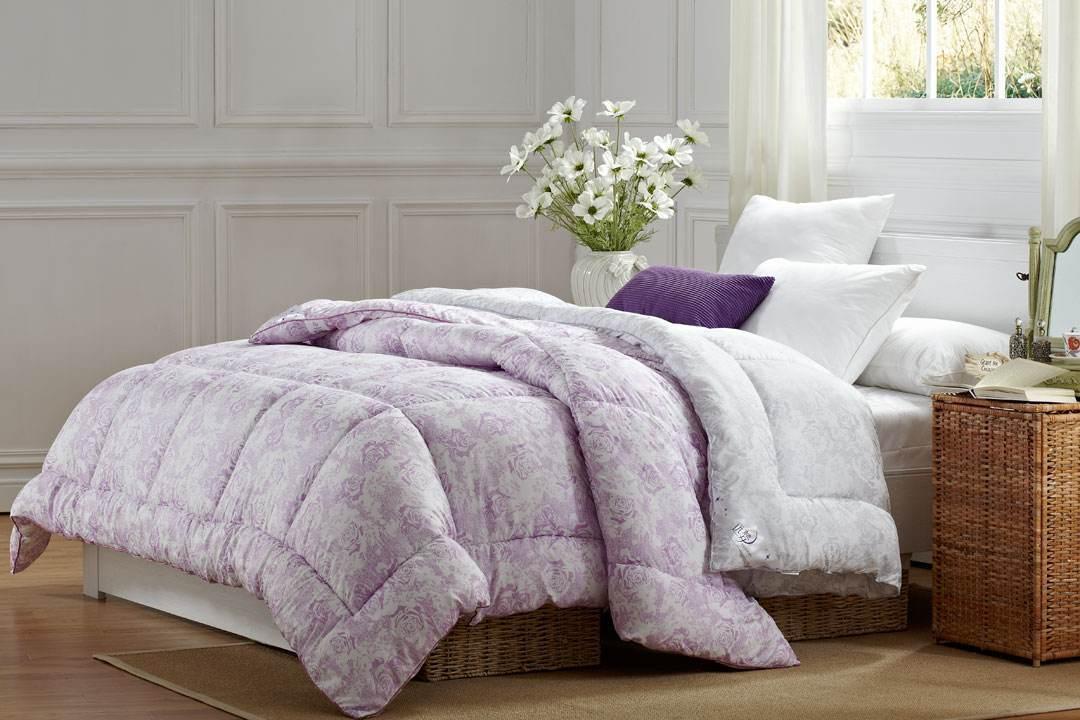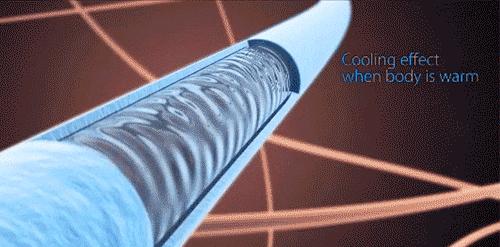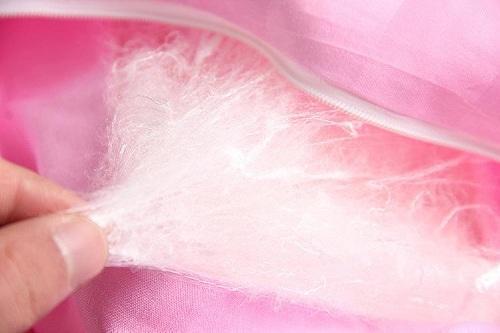羽绒被的材质选择
The material selection of down comforters is crucial to ensure its quality and performance. Commonly used materials include duck down, goose down, and synthetic fibers. Duck down is a popular choice due to its affordability and warmness, while goose down is known for its superior insulation and hypoallergenic properties. Synthetic fibers, such as polyester and nylon, are also commonly used in down comforters to enhance their durability and provide additional warmth. When selecting a down comforter, it is essential to consider the type of material used, its quality, and the individual needs of the user to ensure a comfortable and enjoyable sleeping experience.
Choosing the right material for a down comforter is essential to ensure its longevity, warmth, and comfort. There are several factors to consider when selecting the material, including the type of down used, the thread count of the fabric, and any additional layers or treatments applied to the comforter.
Down type

The first factor to consider is the type of down used in the comforter. Different types of down have different properties and warmth levels. For example, white down is considered to be warmer than gray down, as it has a higher concentration of small, fine feathers that provide better insulation. Additionally, waterfowl down, such as duck or goose down, is often preferred for its softness and warmth.
Thread count
The thread count of the fabric is also important. A higher thread count will result in a softer and more durable fabric that can withstand more washes without breaking down. Thread count refers to the number of threads per square inch in the fabric. The ideal thread count for a down comforter is usually between 200 and 400.

Additional layers and treatments
Some down comforters have additional layers or treatments applied to them to enhance their performance or provide extra comfort. For example, some comforters have a layer of synthetic material, such as polyester, applied to the surface to make them more water-resistant. Others may have a layer of hypoallergenic material to reduce the risk of allergic reactions. Consider these additional features when selecting a comforter to ensure it meets your specific needs.
In conclusion, choosing the right material for a down comforter can be a complex process. However, by considering the type of down used, the thread count of the fabric, and any additional layers or treatments applied to the comforter, you can narrow down your options and find the ideal comforter for your needs. Whether you prioritize warmth, comfort, or durability, these factors will help you make an informed decision that you will be satisfied with for years to come.

Articles related to the knowledge points of this article:
How to Identify a Down Comforter and a Silk Comforter?
Title: Baoshan District Down Comforter Sales Price Inquiry



